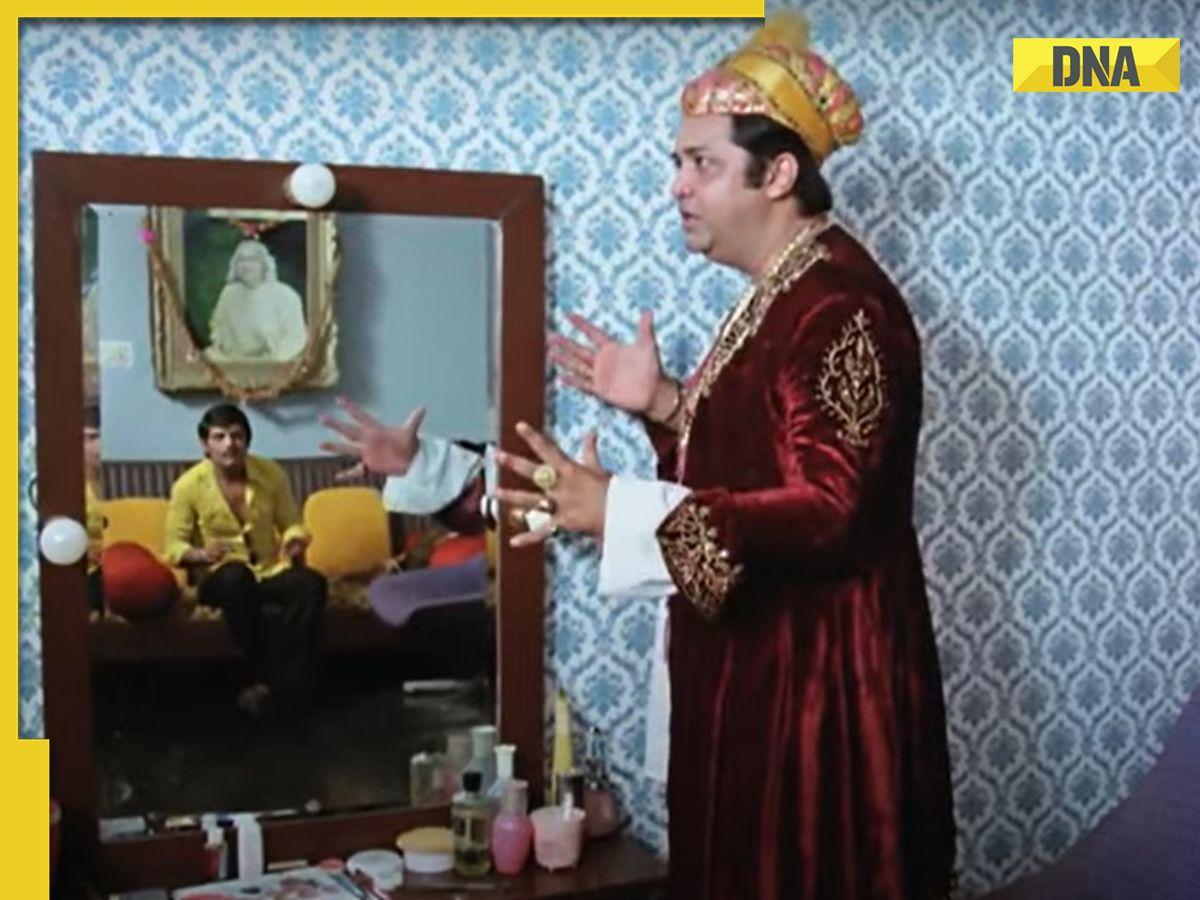
There is a reason why the decade of the 70s is often heralded as the ‘golden era of Hindi cinema.’ This period saw Bollywood produce an array of blockbuster films that have since been cemented as timeless classics. Whether it was emotional family dramas, masala entertainers, or uproarious comedies, the 70s had something for every taste. Today, we delve into the fascinating story behind one such iconic comedy that was shot in less than 50 days. This film wasn’t just a product of inspiration but of the director’s desperate bid to battle his own personal struggles. The result was a film that inspired six remakes in various languages, forever changing the landscape of Indian cinema.
The classic comedy that became a game-changer for Indian cinema is none other than “Gol Maal” (1979). Directed by the legendary Hrishikesh Mukherjee, fondly known as Hrishi Da, and penned by Rahi Masoom Raza and Sachin Bhowmick, “Gol Maal” featured an ensemble cast including Utpal Dutt, Amol Palekar, Bindiya Goswami, David, and Deven Verma. The narrative is centered around Ram Prasad Sharma, played by Amol Palekar, whose harmless lie to secure a job evolves into an intricate web of deceit, much to the suspicion of his orthodox boss Bhavai Shankar, portrayed by Utpal Dutt.
Interestingly, “Gol Maal” was conceived as a remedy for depressive episodes suffered by its director, Hrishikesh Mukherjee. According to a Bollywood Hungama report, Mukherjee had been struggling with severe depression after his previous film, “Alap,” starring Amitabh Bachchan, received critical acclaim but tanked commercially. “I was completely shattered by it and went through depression for several months. To snap out of it, I decided to make an out-and-out comedy,” Mukherjee was quoted as saying.
The seeds of “Gol Maal” were sown in an unexpected place. During his low period, Mukherjee happened to watch a Bengali film titled “Kancha Meetha” (Sour and Sweet). The protagonist of this film concocts multiple stories to cover up one lie, creating a snowball effect of deceptions that aren’t resolved until the last reel. Mukherjee was captivated by this character and envisioned creating a movie that revolved around a similar “web of lies.”
What sets “Gol Maal” apart is its remarkable production timeline.
. The entire film was shot within a span of just 40 days. Apart from a dream sequence and a few additional scenes, most of the film was shot at Mukherjee’s bungalow in Bandra, aptly named Anupama.
Rekha was initially cast in the role of the leading lady, yet she was replaced by Bindiya Goswami. Mukherjee realized that the role for the heroine was limited, and he could not do justice to Rekha’s talent. When he broke the news to Rekha, she was understandably upset. However, the director promised to make a better film with her in the future, a promise he fulfilled with the creation of “Khoobsurat.”
From a financial perspective, “Gol Maal” was a resounding success. Produced on a modest budget of Rs 1 crore, it went on to gross Rs 7 crore worldwide. This translated into a whopping 600% profit, marking it as one of the biggest hits of that year.
Beyond its initial success, “Gol Maal” has ingrained its place in the annals of cinema by inspiring numerous remakes in different languages. The first in line was Rajinikanth’s “Thillu Mullu” (1981), followed by the Kannada film “Aasegobba Meesegobba” (1990), and the Malayalam version “Simhavalan Menon” (1995). It also found its way into Sinhala cinema as “Rasa Rahasak.” Decades later, Rohit Shetty’s “Bol Bachchan” (2012) drew heavily from “Gol Maal,” and this, in turn, was remade in Telugu as “Masala” (2015), which initially carried the working title “Gol Maal.”
The enduring legacy of “Gol Maal” is a testament to Hrishikesh Mukherjee’s brilliance and resilience. What started as a project to overcome personal turmoil evolved into a timeless cinematic masterpiece that continues to inspire filmmakers and entertain audiences across generations.
The DNA app is now available for download on the Google Play Store. Please download the app and share your feedback with us.












